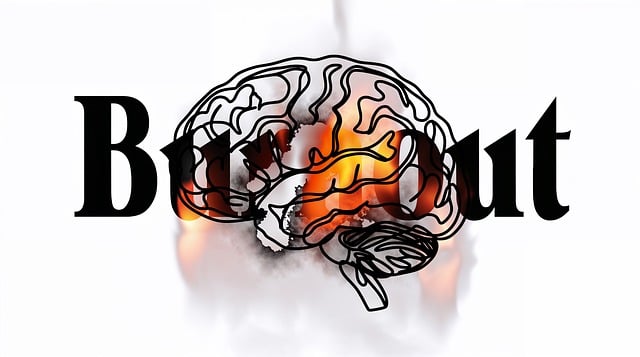Denver Grief Counseling Therapy offers a comprehensive strategy for managing stress by addressing internal factors and external triggers. It equips individuals with coping mechanisms, promotes mental resilience, and fosters emotional well-being. Through mindfulness, CBT, relaxation techniques, and crisis guidance, this therapy helps clients identify stress triggers, develop healthy communication strategies, and build long-term resilience. The inclusive approach extends to community outreach programs, educational workshops, and tailored support for healthcare professionals, ensuring accessible tools for managing stress across diverse life stages and careers.
Stress management is a vital skill in today’s fast-paced world. This comprehensive guide explores effective techniques, focusing on the transformative power of Denver Grief Counseling Therapy. We delve into understanding stress and its profound impact on mental health. Through practical strategies, learn to identify personal triggers and implement daily reduction tactics. Additionally, discover resilience-building skills for long-term coping, offering a holistic approach to navigating life’s challenges, including the unique benefits of Denver Grief Counseling Therapy.
- Understanding Stress and Its Impact on Mental Health
- The Role of Denver Grief Counseling Therapy in Stress Management
- Techniques for Identifying Personal Stress Triggers
- Practical Strategies for Daily Stress Reduction
- Building Resilience: Long-term Coping Skills for Life
Understanding Stress and Its Impact on Mental Health

Stress is a natural response to demanding situations, but when it becomes chronic, it can significantly impact mental health. In Denver Grief Counseling Therapy, professionals often emphasize the importance of understanding stress as a complex interplay between internal factors and external triggers. This includes identifying personal coping mechanisms, recognizing signs of burnout, and fostering mental resilience.
Mental Health Awareness is crucial in navigating the effects of stress. By learning empathy building strategies, individuals can better manage their responses to stressful events, leading to improved emotional well-being. Moreover, developing inner strength through Denver Grief Counseling Therapy enables people to confront challenges head-on, thereby reducing the negative impact of stress on mental health over time.
The Role of Denver Grief Counseling Therapy in Stress Management

Denver Grief Counseling Therapy plays a pivotal role in effective stress management, particularly for individuals grappling with loss and trauma. This specialized form of counseling offers a safe space for emotions to be processed and expressed, helping clients navigate difficult experiences that can lead to heightened stress levels. By focusing on grief and bereavement, Denver Grief Counseling Therapy facilitates the development of healthy coping mechanisms, thereby improving one’s ability to manage mood and prevent burnout.
Beyond individual therapy sessions, many community outreach programs are implemented under this banner. These initiatives aim to build resilience among affected populations by providing support networks and education on stress management techniques. Given that healthcare providers often face high-stress environments, Denver Grief Counseling Therapy can also be adapted to include burnout prevention strategies tailored for their unique needs. This holistic approach ensures that individuals across various life stages and professions have access to effective tools for managing stress and maintaining well-being.
Techniques for Identifying Personal Stress Triggers

Recognizing personal stress triggers is a powerful step towards effective stress management. It involves understanding what specifically sets off your anxiety or tension. These triggers can be diverse, ranging from everyday stressors like heavy traffic and packed schedules to more profound issues such as financial worries or interpersonal conflicts. By identifying these catalysts, individuals in Denver Grief Counseling Therapy can begin to unravel the complex web of their stress responses.
Community Outreach Program Implementation plays a vital role here by offering platforms for open dialogue and education on stress management. Through group sessions and workshops, participants learn to recognize patterns and develop strategies to address triggers effectively. This proactive approach to Depression Prevention not only equips individuals with coping mechanisms but also fosters a sense of agency in navigating life’s challenges, ultimately enhancing their overall well-being.
Practical Strategies for Daily Stress Reduction

Stress management is a vital skill to cultivate, especially in today’s fast-paced world. For those seeking comprehensive solutions, Denver Grief Counseling Therapy offers practical strategies tailored to daily stress reduction. The approach integrates various techniques, from mindfulness exercises and cognitive behavioral therapy (CBT) to relaxation practices and crisis intervention guidance. These methods are designed to empower individuals with tools to navigate life’s challenges effectively.
One effective strategy involves identifying triggers and implementing communication strategies. This includes recognizing patterns in stressful situations and developing healthy coping mechanisms. Mental health professionals emphasize the importance of risk assessment as a proactive measure, enabling them to offer tailored support. By combining these practical steps, individuals can enhance their resilience, leading to improved mental well-being.
Building Resilience: Long-term Coping Skills for Life

Building resilience is an essential aspect of stress management that goes beyond immediate coping strategies. It involves developing long-term skills to navigate life’s challenges and foster mental wellness. Through Denver grief counseling therapy, individuals can learn powerful tools to enhance their resilience, ensuring they are better equipped to handle stressful situations as they arise. This process empowers people to view stressors as opportunities for growth rather than overwhelming obstacles.
By incorporating these techniques into daily routines, individuals gain a sense of control and self-efficacy. The Mind Over Matter principles, often explored in mental wellness podcast series production, can be life-changing when coupled with cultural competency training for healthcare providers. This holistic approach allows people to build a robust foundation of coping skills, enabling them to adapt and bounce back from difficult experiences, ultimately leading to improved overall health and well-being.
Incorporating stress management techniques into your daily routine can significantly improve mental health and overall well-being. As discussed, understanding stress triggers and utilizing practical strategies like mindfulness and exercise are essential tools for navigating life’s challenges. Denver Grief Counseling Therapy offers specialized support, teaching individuals how to build resilience and cope effectively. By mastering these skills, you can transform stress from a burden into a catalyst for growth, fostering a more balanced and fulfilling life.














